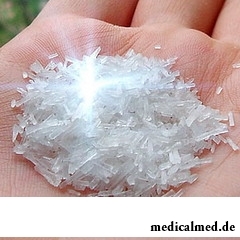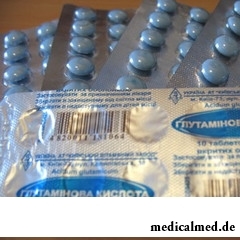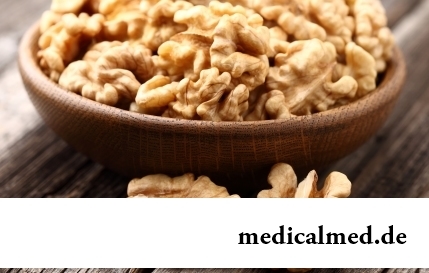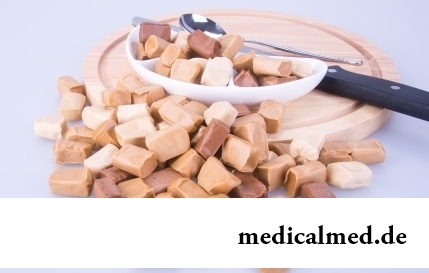





Glutaminic acid
Glutaminic acid concerns to group of replaceable amino acids and plays an important role in an organism. Its contents in an organism makes up to 25% of all amino acids.
in an organism makes up to 25% of all amino acids.
Commercially glutaminic acid is received by microbiological synthesis. In chemically pure look it has an appearance of the white or inodorous colourless crystals having acid taste, in water crystals are dissolved badly. For the best solubility glutaminic acid is turned into sodium salt – a glutamate.
Use of glutaminic acid
In the food industry glutaminic acid is known as nutritional supplement under the name E620. It is used as the amplifier of taste in a number of products along with salts of glutaminic acid – glutamates.
Glutaminic acid is added to semi-finished products, instant various products, culinary products, concentrates of broths. It impacts to food pleasant meat relish.
In medicine use of glutaminic acid renders insignificant psychogogic, exciting and nootropic action that is used in treatment of a number of diseases of a nervous system.
In the middle of the 20th century doctors recommended use of glutaminic acid inside in case of muscular and dystrophic diseases. Also it was appointed to athletes for the purpose of increase in muscle bulk.
Value of glutaminic acid for an organism
It is difficult to revaluate a role of glutaminic acid, it:
- Participates in synthesis of a histamine, serotonin and some other biologically active agents;
- Neutralizes harmful decomposition product – ammonia;
- Is a mediator;
- Enters a cycle of transformations of carbohydrates and nucleic acids;
- From it folic acid is synthesized;
- Participates in exchange of energy with formation of AFT in a brain.
In an organism glutaminic acid is a part of proteins, it is present at a blood plasma in a free look and also as a component of a number of low-molecular substances. The body of the person contains a reserve of glutaminic acid, in case of its insufficiency it first of all arrives there where it is necessary most of all.
Glutaminic acid plays an important role in transfer of nervous impulses. Linkng with certain receptors of nervous cells leads it to excitement of neurons and acceleration of momentum transfer. Thus, glutaminic acid performs neuromediator functions.
At excess of this amino acid in a synapse overexcitation of nervous cells and even their damage is possible that leads to diseases of a nervous system. In this case protective function is undertaken by glial cells which surround and protect neurons. Cells of a neuroglia absorb and neutralize excess of glutaminic acid in a brain and peripheral nerves.
Glutaminic amino acid increases sensitivity of muscle fibers to potassium by increase in permeability of cellular membranes for it. This microelement plays an important role in reduction of muscles, increasing force of muscular contraction.
Glutaminic acid in sport
Glutaminic acid – quite widespread component of sports food. It is replaceable amino acid for a human body, and transformations of other amino acids happen through glutaminic amino acid which plays the integrating role in exchange of nitrogenous substances. If in an organism any amino acid is not enough, compensation of its contents by transformation from those amino acids which contain much is possible.
for a human body, and transformations of other amino acids happen through glutaminic amino acid which plays the integrating role in exchange of nitrogenous substances. If in an organism any amino acid is not enough, compensation of its contents by transformation from those amino acids which contain much is possible.
If the exercise stress on an organism is very high, and intake of protein with food is limited or does not correspond to requirements of an organism, there is a phenomenon of nitrogenous redistribution. In this case the proteins entering into structure of internals go for creation of fibers of skeletal and cardiac muscles. Therefore in sport glutaminic acid plays an irreplaceable role, it is the intermediate stage in transformations of those amino acids which are not enough for an organism.
Transformation of glutaminic acid into a glutamine for the purpose of ammonia neutralization – one of its main functions. Ammonia is very toxic, but it is an invariable metabolic product – falls to its share to 80% of all nitrogenous compounds. The more load of an organism, the more is formed toxic products of nitrogenous disintegration. In sport glutaminic acid undertakes decrease in level of ammonia, connecting it in a non-toxic glutamine. Besides, according to reviews, glutaminic acid quickly recovers a condition of athletes after the competitions as connects surplus of a lactate which is responsible for feeling of muscular pain.
At athletes at a lack of level of glucose at the time of an intensive exercise stress glutaminic acid turns into an energy source – glucose.
According to reviews, glutaminic acid is well transferred, has no side effects and is absolutely harmless to an organism. The conducted researches showed that 100 g of proteinaceous food contain 25 g of glutaminic acid. This amino acid – a natural component of animal food, and negative reviews of glutaminic acid are a little exaggerated.
Even if heart of the person does not fight, then he all the same can live during a long period, as the Norwegian fisherman Jan Revsdal showed us. Its "motor" stopped for 4 hours after the fisherman got lost and fell asleep in snow.

The concept "gluten" (differently, a gluten) combines group of the proteins which are a part of rye, barley and wheat. For most of people упот...
Section: Articles about health
The person, as well as all other beings living on our planet feels weather changing. It is the normal meteosensitivity which is not causing to healthy people of special troubles. Meteodependence, on the contrary, is morbid condition, характеризующимс...
Section: Articles about health
A little more than a century ago goat milk was a traditional food stuff of most of Russians. Unfortunately, today on tables of our compatriots it appears extremely seldom. The reason that the use of so useful product practically came to naught, not only in very modest volumes of its production and, respectively, rather high cost. Potential consumers are just insufficiently informed on unique properties of goat milk and that advantage which...
Section: Articles about health
People know that thermal sources have salutary force long ago. Treatment by natural waters is one and...
Section: Articles about health
It is difficult to revaluate importance of kidneys for an organism. These bodies not only perform work on purification of blood of decomposition products and removal of excess liquid. They are responsible also for production of some hormones necessary for normality maintenance...
Section: Articles about health
The phenomenon of improvement of a condition of the patients at administration of drugs who are not containing active agents, so-called effect of placebo is known long ago. At the end of the 18th century the American doctor Perkins began to treat people the "miracle" sticks made of alloy of steel and brass. Was for several minutes to press such subject enough to a sore point that it became much easier for the patient. Having suspected Perkins of charlatanism, his colleagues tried to repeat "miracle" by means of sticks, steles...
Section: Articles about health
Water with a lemon - idle time in preparation drink which supporters of a healthy lifestyle already managed to appreciate. Upo...
Section: Articles about health
With age in a human body harmful substances collect. We receive them with food and water, at inhalation of the contaminated air, reception of medicines, use of household chemicals and cosmetics. A considerable part of toxins accumulates in a liver, osnovno...
Section: Articles about health
Heart disease and blood vessels lead to disturbance of blood supply of bodies and fabrics that involves failures in their work, deterioration in health of the person, decrease in its working capacity and standard of living. Annually more than 17 million inhabitants of our planet perish from pathologies such....
Section: Articles about health
Aspirin (acetylsalicylic acid) – one of those drugs which are known literally to all. It is available in each home first-aid kit...
Section: Articles about health
Good appetite was always considered as a sign of good health. The correct operation of the mechanism which is responsible for the need for nutrients and receiving pleasure from process of its satisfaction demonstrates that the organism functions without special from...
Section: Articles about health
More than a half of the married couples which faced prostatitis – leave. The new broadcast "Female View of Prostatitis" will help to learn – whether you have or your relatives problems....
Section: Articles about health
Color of plants is caused by presence at them of certain chemical compounds. Let's talk that various colors mean vegetable...
Section: Articles about health
About 20% of the population of our planet have a hypertension (permanent increase in arterial pressure). This disease has an adverse effect on the standard of living, reduces working capacity, and in the absence of systematic treatment threatens with such complications as a heart attack...
Section: Articles about health
Separate food - the system of meal based on digestion physiology which is carried to improvement methods. According to nutritionists, the separate use of the carbohydrate and proteinaceous products demanding different conditions of assimilation helps to get rid of diseases of digestive tract and serves as prophylactic from a diabetes mellitus, arthritis, food allergies, cholelithiasis and many other frustration. The essence of salutary effect of a method consists in most Kacha...
Section: Articles about health
Many of us, probably, noticed more than once that from intellectual loadings at some point the brain as though "overheats" also "assimilation"...
Section: Articles about health
Olive oil – the product capable to make a powerful contribution to health of the person if it includes it in the diet. The rich vitamin composition of oil does it by a product number one from many diseases including from deadly. Only two tablespoons...
Section: Articles about health
Practically each person is familiar with the annoying, pulling, unscrewing pains caused by overcooling of muscles of a back. In certain cases inflammatory process is not limited to discomfort, being followed by emergence of hypostasis, consolidations, temperature increase. At the wrong treatment the acute miositis can lead to a chronic disease or aggravation of other pathologies of a back (vertebral hernia, osteochondrosis) therefore it is important to pay attention to symptoms of an illness in time and to start to...
Section: Articles about health
Coffee - the tonic loved by many for the invigorating aroma and deep taste. Having the stimulating effect, coffee raises ра...
Section: Articles about health
The kid who was recently born is surrounded with love of adult family members and their cares without which the baby cannot exist. Some parents consider that gentle attachment and caress are quite enough that the child correctly developed and was happy...
Section: Articles about health
For most of the working people the problem of having a snack is particularly acute enough. Sooner or later there is a question: what can be eaten quickly between a breakfast and a lunch or a lunch and leaving from service so that to receive necessary power feed, but not to overload an organism with harmful components or excess calories? We bring to your attention the list of products which quite conform to these requirements....
Section: Articles about health
Food with the increased content of sugar is attractive to most of people - it is scientifically confirmed fact. Business here not in a nevozder...
Section: Articles about health
Today about 30 diseases, sexually transmitted are known. Wide circulation of these illnesses is extremely promoted by the dual attitude towards them: on the one hand, most of people know about "shameful" diseases and not a stirrup very little...
Section: Articles about health
Visit of doctors – business not the most pleasant, and many people do not hurry to undergo necessary planned inspections. Such behavior is extremely thoughtless and improvident. Our health is necessary not only to us: wellbeing of darlings, children, grandsons and aged parents directly depends on as far as we are vigorous and able-bodied. Therefore in time to be inspected – a duty of any modern person. Specialists consider that 7 regular surveys and di are especially necessary for women...
Section: Articles about health
Statistically, at the address to doctors seven of each ten patients complain of a headache. Actually people, periodically...
Section: Articles about health
It is impossible to imagine human life in which there would be no plants. Practically in each apartment and any production room there are window plants, millions of people with pleasure are engaged in gardening and truck farming, many citizens пр...
Section: Articles about health
Diapers for adults – individual one-time means of hygiene which in some situations is irreplaceable and from such situations any person is not insured. Though nobody perceives need of their use with enthusiasm, however without such means already problematic situation could be heavier....
Section: Articles about health
